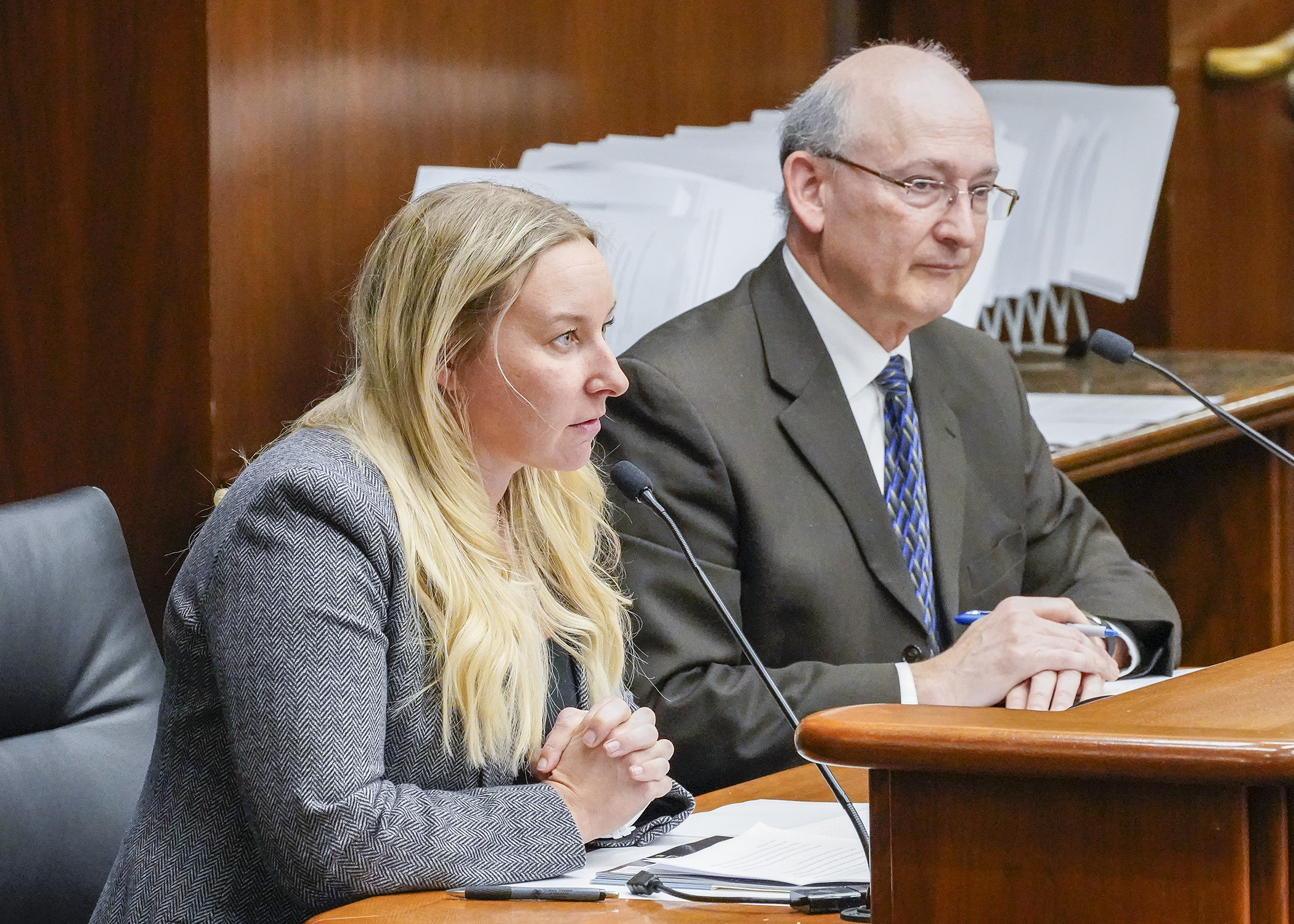Plan seeks to cut out middle man, terminate managed care contracts

The state can pay health care providers for services or pay insurance companies to pay providers.
Rep. Peter Fischer (DFL-Maplewood) wants to bypass insurance, or managed care organizations, and pay providers directly. In most cases, he said companies are essentially managing claims not managing care.
He sponsors HF693 that would require the Department of Human Services to establish a direct provider payment system for medical assistance and MinnesotaCare, beginning Jan. 1, 2026.
People want to choose their doctor, clinic or hospital, not which insurance company, said Rep. Tina Liebling (DFL-Rochester).
On Thursday, the House Health Finance and Policy Committee laid the bill over, after adopting a delete-all amendment, to await both a fiscal note and an appropriation amount.
According to a department presentation, the state can purchase health care for enrollees in two ways. A fee-for-service purchase, where the department processes claims and directly pays providers, accounts for 15% of enrollees; for the other 85%, the department pays managed care organizations to provide benefits to enrollees, process claims and pay providers.
Under the bill, the department would reimburse health care providers using fee-for-service payment methods to determine a base rate. It would also provide supplemental payments to cover the cost of care coordination and additional services.
Additionally, grants could go to qualified health centers and community health clinics who care for underserved populations.
Managed care contracts would have to terminate by Dec. 31, 2025, with an exception that county-based purchasing plans or county-owned and operated health maintenance organizations could continue their contracts.
To enact necessary changes, the department would need to present an implementation plan to the Legislature by Jan. 15, 2024.
If you’re saying to yourself, “I read all those words and still don’t understand,” you’re in luck.
A 24-hour-a-day nurse consultation helpline would be available, as well as a hotline and website for enrollees to access providers.
Kathleen Albrecht, director of Medicaid and SNP Product & Strategy with Medica, testified in opposition on behalf of the vulnerable people she serves. “Passage of this bill will create confusion, poorer health outcomes and greater strife for them.”
The lack of choice upset many Republican members.
“I couldn’t be more opposed to moving down the avenue where our public program participants have one option,” said Rep. Danny Nadeau (R-Rogers).
Related Articles
Search Session Daily
Advanced Search OptionsPriority Dailies
Speaker Emerita Melissa Hortman, husband killed in attack
By HPIS Staff House Speaker Emerita Melissa Hortman (DFL-Brooklyn Park) and her husband, Mark, were fatally shot in their home early Saturday morning.
Gov. Tim Walz announced the news dur...
House Speaker Emerita Melissa Hortman (DFL-Brooklyn Park) and her husband, Mark, were fatally shot in their home early Saturday morning.
Gov. Tim Walz announced the news dur...
Lawmakers deliver budget bills to governor's desk in one-day special session
By Mike Cook About that talk of needing all 21 hours left in a legislative day to complete a special session?
House members were more than up to the challenge Monday. Beginning at 10 a.m...
About that talk of needing all 21 hours left in a legislative day to complete a special session?
House members were more than up to the challenge Monday. Beginning at 10 a.m...